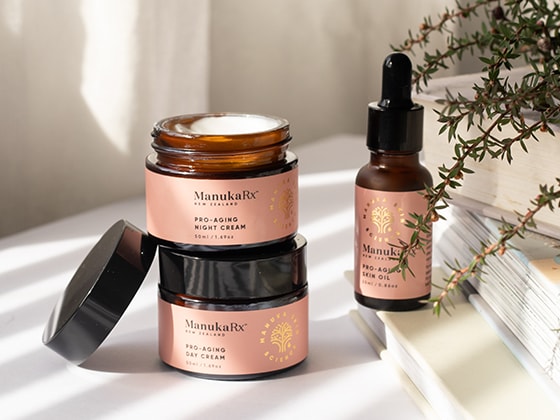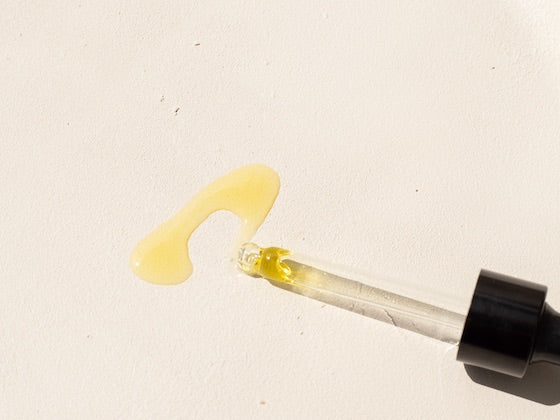Mānuka oil, particularly the triketone-rich chemotypes from the East Cape, have been shown to have activity against bacteria and against some fungi.
Oil from the East Cape chemotype, is a triketone rich selection, and the unique strong activity of this oil against gram-positive bacteria. For example, Staphylococcus aureus and its antibiotic resistant strain MRSA are gram-positive bacteria, and the effectiveness of mānuka oil has been conclusively proven to be due to the presence of triketones.
Mānuka Oil Has Been Shown to Be Antimicrobial [i]
Mānuka oil contains β-triketones, natural compounds that kill or stop the growth of micro-organisms. These compounds can be broken down into antibacterial and antifungal agents. They stimulate immune response in wounds, speeding up healing times.
Mānuka Oil is Antibacterial
The most widely studied property of mānuka oil is its amazing antibacterial abilities. An Otago University study showed that it was effective against the specific bacteria that cause acne.
Another study, published in the Journal of Microbiology, analysed microorganism growth and found that manuka oil significantly inhibited growth of the bacteria S. aureus, S. mutans, S. sobrinus, and E. coli. Mānuka oil was found to be effective against some antibiotic resistant ‘super bugs’, including MRSA.
Studies Show it is Antifungal
In the same Journal of Microbiology study, researchers found that mānuka oil has potent fungicidal properties capable of inhibiting growth of fungi.
It Contains Anti-aging and Antioxidant Properties
A 2013 study[ii] showed that a topical application suppressed the UV-B induced increase in skin thickness and wrinkle grading in a dose- dependent manner. Mānuka oil also could suppress UV-B induced skin inflammation by inhibiting the production of inflammatory cytokines.
They suggest that it is the presence of antioxidant chemicals and sesquiterpene compounds in mānuka oil that underlie the attenuation of cutaneous photo aging.
With these results they suggest that their work supports the use of mānuka oil in the formulation of skin care and functional cosmetics.
It Can Be Anti-inflammatory
A 2014 study[iii] investigated suppression or inhibition of inflammatory reactions mediated by mānuka oil.
They found that where the inflammation was caused by microorganism infection the oil had anti-inflammatory effects on LPS (lipopolysaccharide) induced release of TNF- alpha, but had no influence on IL-4.
They also found that the oil did not have a stimulatory effect on cytokine release in untreated THP-1 macrophages.
Because TNF-alpha release from monocytes/macrophages regulates Th-1 mediated inflammatory responses, short term non-toxic dosage for the oil may be effective in treating inflammation.
In THP-1 cells, the oil lowered tumour necrosis factor –alpha released after lipopolysaccharide stimulation.
They suggest that the oil may be effective for treating lesions caused by insect bites and for repairing infected wounds.
The fact that the oil did not significantly affect IL-4 release suggests that, in addition to the anti-inflammatory properties, the oil has potential application as an anti-allergenic agent and be effective in human epidermal related products.
Mānuka oil is capable of significantly reducing inflammation without irritating the skin, and has been demonstrated to be an effective treatment for some people with sensitive skin and those who suffer from dry skin conditions
And It Could Be Antiviral
A 2005 study[iv] showed that mānuka oil inhibited the Herpes simplex -1 and -2 virus when the viruses were pre-treated with the oil one hour before cell infection.
After infection, only HSV- 1 replication was significantly inhibited. A similar study showed that flavesone and mānuka oil were the most active substances against Herpes simplex virus type 1 when in direct contact with the virus, but all of the triketones showed strong antiviral activity.
The mechanism seems to be an interaction of the triketones with the virion envelope hindering the adsorption of the virus by the host cell’.
It’s Antispasmodic
In a study in 1998[v] mānuka oil showed a spasmolytic action on smooth muscle. Using the diaphragm, manuka oil decreased tension and had a delayed contracture.
The oil is also antispasmodic, meaning that it may be of benefit for treatment of muscle strain or inflammatory conditions.
Research is being conducted into mānuka oil for the treatment of arthritis and fibromyalgia.
It’s a Cicatrisant
Mānuka oil also contains calamenene, which is known to have skin calming and analgesic properties.
These properties assist in wound healing and scar reduction.
Mānuka oil works as a full treatment, first killing or reducing bacteria or fungal growth, then reducing inflammation and calming the skin, allowing for faster healing and less scarring.
Want to find out more, have a look at the in-depth research here.
Citations:
[i] Cooke & Cooke M.D. (1994) "An investigation into the antimicrobial properties of mānuka & kānuka oils" Cawthron Report No 263, New Zealand.
[ii] Kwon, O.S.; Jung, S.H. and Yang, B.S. (2013) Topical Administration of Mānuka Oil Prevents UV-B Irradiation–induced Cutaneous Photoaging in Mice. Evidence based complementary and alternative medicine.10 pages. http://dx.doi.org/10.1155/2013/930857.
[iii] Chen, C-C; Yan S-H; Yen, M-Y; Wu, P-F; Liao, W-T; Huang, T-S; We, Z-H and Wang, H-M. D. (2014) Investigations of Kanuka and Mānuka Essential Oils for in vitro Treatment of Disease and Cellular Inflammation Caused by Infectious Microorganisms. Journal of Microbiology, Immunology and infection.
[iv] Reichling, J.; Koch, C.; Stahl-Biskup, E; Sojka, C and Schnitzler, P. (2005) Virucidal Activity of a B- Triketone–rich Essential Oil of Leptospermum scoparium (Mānuka Oil) against HSV-1and HSV-2 in Cell Culture. Planta Medica 71(12):1123-1127.
[v] Lis-Balchin, M. and Hart, S.L. (1998) An Investigation of the Actions of the Essential Oils of Mānuka (Leptospermum scoparium) and Kānuka (Kunzea ericoides) Myrtaceae on Guinea-pig Smooth Muscle. J Pharm Pharmacol 50:809-811.






